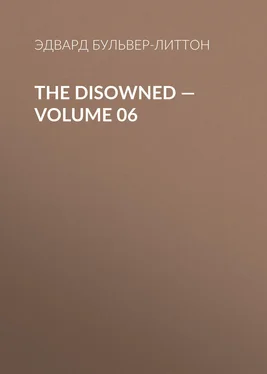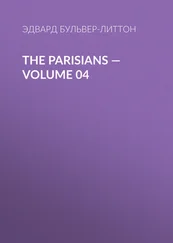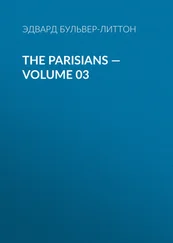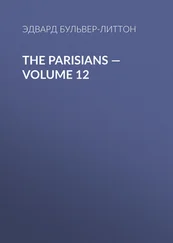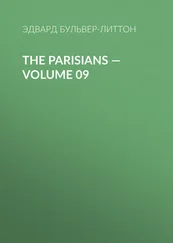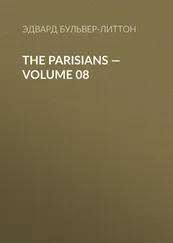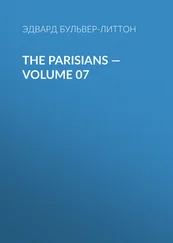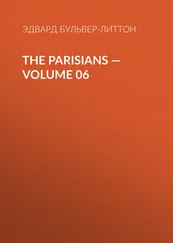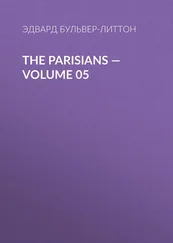Эдвард Бульвер-Литтон - The Disowned — Volume 06
Здесь есть возможность читать онлайн «Эдвард Бульвер-Литтон - The Disowned — Volume 06» — ознакомительный отрывок электронной книги совершенно бесплатно, а после прочтения отрывка купить полную версию. В некоторых случаях можно слушать аудио, скачать через торрент в формате fb2 и присутствует краткое содержание. Жанр: foreign_prose, literature_19, Европейская старинная литература, foreign_antique, на английском языке. Описание произведения, (предисловие) а так же отзывы посетителей доступны на портале библиотеки ЛибКат.
- Название:The Disowned — Volume 06
- Автор:
- Жанр:
- Год:неизвестен
- ISBN:нет данных
- Рейтинг книги:5 / 5. Голосов: 1
-
Избранное:Добавить в избранное
- Отзывы:
-
Ваша оценка:
- 100
- 1
- 2
- 3
- 4
- 5
The Disowned — Volume 06: краткое содержание, описание и аннотация
Предлагаем к чтению аннотацию, описание, краткое содержание или предисловие (зависит от того, что написал сам автор книги «The Disowned — Volume 06»). Если вы не нашли необходимую информацию о книге — напишите в комментариях, мы постараемся отыскать её.
The Disowned — Volume 06 — читать онлайн ознакомительный отрывок
Ниже представлен текст книги, разбитый по страницам. Система сохранения места последней прочитанной страницы, позволяет с удобством читать онлайн бесплатно книгу «The Disowned — Volume 06», без необходимости каждый раз заново искать на чём Вы остановились. Поставьте закладку, и сможете в любой момент перейти на страницу, на которой закончили чтение.
Интервал:
Закладка:
His house, a fine old mansion, is situated about five or six miles from this town: and as I arrived here late in the evening, and knew that his habits were reserved and peculiar, I thought it better to take "mine ease in my inn" for this night, and defer my visit to Mordaunt Court till to-morrow morning. In truth, I was not averse to renewing an old acquaintance,—not, as you in your malice would suspect, with my hostess, but with her house. Some years ago, when I was eighteen, I first made a slight acquaintance with Mordaunt at this very inn, and now, at twenty-six, I am glad to have one evening to myself on the same spot, and retrace here all that has since happened to me.
Now do not be alarmed: I am not going to inflict upon you the unquiet retrospect with which I have just been vexing myself; no, I will rather speak to you of my acquaintance and host to be. I have said that I first met Mordaunt some years since at this inn,—an accident, for which his horse was to blame, brought us acquainted,—I spent a day at his house, and was much interested in his conversation; since then, we did not meet till about two years and a half ago, when we were in Italy together. During the intermediate interval Mordaunt had married; lost his property by a lawsuit; disappeared from the world (whither none knew) for some years; recovered the estate he had lost by the death of his kinsman's heir, and shortly afterwards by that of the kinsman himself; and had become a widower, with one only child, a beautiful little girl of about four years old. He lived in perfect seclusion, avoided all intercourse with society, and seemed so perfectly unconscious of having ever seen me before, whenever in our rides or walks we met, that I could not venture to intrude myself on a reserve so rigid and unbroken as that which characterized his habits and life.
The gloom and loneliness, however, in which Mordaunt's days were spent, were far from partaking of that selfishness so common, almost so necessarily common, to recluses. Wherever he had gone in his travels through Italy, he had left light and rejoicing behind him. In his residence at ——, while unknown to the great and gay, he was familiar with the outcast and the destitute. The prison, the hospital, the sordid cabins of want, the abodes (so frequent in Italy, that emporium of artists and poets) where genius struggled against poverty and its own improvidence,—all these were the spots to which his visits were paid, and in which "the very stones prated of his whereabout." It was a strange and striking contrast to compare the sickly enthusiasm of those who flocked to Italy to lavish their sentiments on statues, and their wealth on the modern impositions palmed upon their taste as the masterpieces of ancient art,—it was a noble contrast, I say, to compare that ludicrous and idle enthusiasm with the quiet and wholesome energy of mind and heart which led Mordaunt, not to pour forth worship and homage to the unconscious monuments of the dead but to console, to relieve, and to sustain the woes, the wants, the feebleness of the living.
Yet while he was thus employed in reducing the miseries and enlarging the happiness of others, the most settled melancholy seemed to mark himself "as her own." Clad in the deepest mourning, a stern and un broken gloom sat forever upon his countenance. I have observed, that if in his walks or rides any one, especially of the better classes, appeared to approach, he would strike into a new path. He could not bear even the scrutiny of a glance or the fellowship of a moment: and his mien, high and haughty, seemed not only to repel others, but to contradict the meekness and charity which his own actions so invariably and unequivocally displayed. It must, indeed, have been a powerful exertion of principle over feeling which induced him voluntarily to seek the abodes and intercourse of the rude beings he blessed and relieved.
We met at two or three places to which my weak and imperfect charity had led me, especially at the house of a sickly and distressed artist: for in former life I had intimately known one of that profession; and I have since attempted to transfer to his brethren that debt of kindness which an early death forbade me to discharge to himself. It was thus that I first became acquainted with Mordaunt's occupations and pursuits; for what ennobled his benevolence was the remarkable obscurity in which it was veiled. It was in disguise and in secret that his generosity flowed; and so studiously did he conceal his name, and hide even his features, during his brief visits to "the house of mourning," that only one like myself, a close and minute investigator of whatever has once become an object of interest, could have traced his hand in the various works of happiness it had aided or created.
One day, among some old ruins, I met him with his young daughter. By great good-fortune I preserved the latter, who had wandered away from her father, from a fall of loose stones, which would inevitably have crushed her. I was myself much hurt by my effort, having received upon my shoulder a fragment of the falling stones; and thus our old acquaintance was renewed, and gradually ripened into intimacy; not, I must own, without great patience and constant endeavour on my part; for his gloom and lonely habits rendered him utterly impracticable of access to any (as Lord Aspeden would say) but a diplomatist. I saw a great deal of him during the six months I remained in Italy, and—but you know already how warmly I admire his extraordinary powers and venerate his character—Lord Aspeden's recall to England separated us.
A general election ensued. I was returned for ——. I entered eagerly into domestic politics; your friendship, Lord Aspeden's kindness, my own wealth and industry, made my success almost unprecedentedly rapid. Engaged heart and hand in those minute yet engrossing labours for which the aspirant in parliamentary and state intrigue must unhappily forego the more enlarged though abstruser speculations of general philosophy, and of that morality which may be termed universal, politics, I have necessarily been employed in very different pursuits from those to which Mordaunt's contemplations are devoted, yet have I often recalled his maxims, with admiration at their depth, and obtained applause for opinions which were only imperfectly filtered from the pure springs of his own.
It is about six months since he has returned to England, and he has very lately obtained a seat in Parliament: so that we may trust soon to see his talents displayed upon a more public and enlarged theatre than they hitherto have been; and though I fear his politics will be opposed to ours, I anticipate his public debut with that interest which genius, even when adverse to one's self, always inspires. Yet I confess that I am desirous to see and converse with him once more in the familiarity and kindness of private intercourse. The rage of party, the narrowness of sectarian zeal, soon exclude from our friendship all those who differ from our opinions; and it is like sailors holding commune for the last time with each other, before their several vessels are divided by the perilous and uncertain sea, to confer in peace and retirement for a little while with those who are about to be launched with us on that same unquiet ocean where any momentary caprice of the winds may disjoin us forever, and where our very union is only a sympathy in toil and a fellowship in danger.
Adieu, my dear duke! it is fortunate for me that our public opinions are so closely allied, and that I may so reasonably calculate in private upon the happiness and honour of subscribing myself your affectionate friend, C. L.
Such was the letter to which we shall leave the explanation of much that has taken place within the last three years of our tale, and which, in its tone, will serve to show the kindness and generosity of heart and feeling that mingled (rather increased than abated by the time which brought wisdom) with the hardy activity and resolute ambition that characterized the mind of our "Disowned." We now consign him to such repose as the best bedroom in the Golden Fleece can afford, and conclude the chapter.
Читать дальшеИнтервал:
Закладка:
Похожие книги на «The Disowned — Volume 06»
Представляем Вашему вниманию похожие книги на «The Disowned — Volume 06» списком для выбора. Мы отобрали схожую по названию и смыслу литературу в надежде предоставить читателям больше вариантов отыскать новые, интересные, ещё непрочитанные произведения.
Обсуждение, отзывы о книге «The Disowned — Volume 06» и просто собственные мнения читателей. Оставьте ваши комментарии, напишите, что Вы думаете о произведении, его смысле или главных героях. Укажите что конкретно понравилось, а что нет, и почему Вы так считаете.
